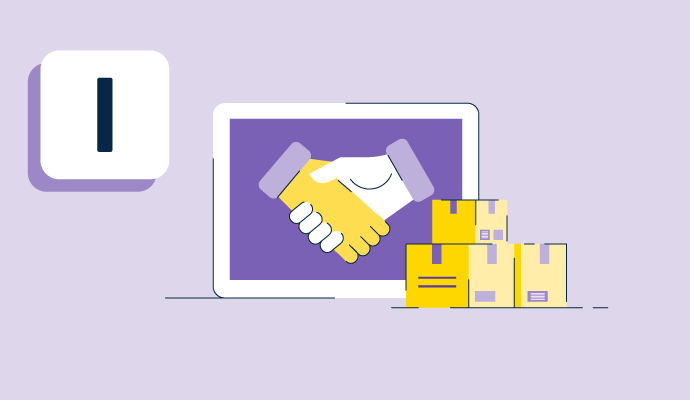What are indirect sales?
Indirect sales are made by a third-party individual between the consumer and the primary seller or selling organization. There is no contact between the direct seller and the buyer in an indirect sale.
Indirect sales are one way for companies to drive revenue and expand their audience reach. Shifting responsibilities to a third-party transfers some of the marketing and revenue work outside of the selling company and can lower overhead costs in these areas. Many brands leverage partner management software to track and manage these relationships.
Types of indirect sales
There are different types of indirect sales, each with its own unique process and setup. Companies may use one or more types depending on the product and revenue strategy. Types of indirect sales include:
- Affiliates sell a company’s products or services for a commission, which varies depending on the seller and the products or services, but often the seller receives a percentage of the sale price. Affiliate marketers use a variety of platforms to advertise to their audience. Many companies leverage affiliate marketing software as part of their online marketing strategy.
- Resellers interact with the consumer on behalf of a company and resell the primary seller’s product or service on their behalf. Technology and software companies often use resellers to help market their products to a broader audience.
- Independent salespeople or independent representatives are third-party sellers hired at an individual level to work on behalf of the primary company. An independent agent may be responsible for selling products or services in a particular region for a commission.
Benefits of indirect sales
Indirect sales are one component of many companies’ holistic sales strategies. Below are some of the key benefits an organization can expect:
- Cost-savings for the primary seller. Utilizing different methods prevents the seller from hiring in-house sales and marketing team members. By outsourcing, the seller can reduce overhead costs and avoid the logistical aspects of hiring and training individuals in the company.
- Faster expansion into the market. Whether working with affiliates with large audiences or relying on independent salespeople to sell a brand, using these indirect channels allows a company to spread rapidly through a target market. Think of it as a domino effect in which a product or service reaches audience members.
- Potential to build a larger audience. This strategy can help companies grow their intended audience. Plus, doing so can help companies break into new target customer bases to form larger audiences and tailor future products and services for all groups.
Indirect sales challenges
Depending on the sales and marketing strategies of the company, indirect selling may not align with a company’s goals. There are some challenges to keep in mind, including:
- Lack of direct access to customers. Building customer relationships is more challenging due to the lack of communication between the buyer and the direct seller. Adding a third-party seller adds a layer of distance and can create communication challenges.
- Not practical for every sales cycle. Using this method may not make sense for a more complex, longer sales cycle. Outsourcing is advantageous for scaling quickly and selling more.
- Finding the right partners can be tricky. It’s essential to find the right partners to sell products and services they can speak to effectively. Indirect sellers need to understand and advertise products and services accordingly.
Indirect sales best practices
Some general best practices should be followed when implementing this type of strategy. A framework for successful engagements between the seller and indirect sellers should include components of the following for the best results:
- Communication channels: Indirect sellers should have a level of access to the company they’re selling on behalf of to get questions answered. Establish a point of contact and preferred method of communication upfront to ensure communication lines stay open and are accessible.
- Offer training and knowledge: Indirect sellers need to understand the product or service to drive revenue. Providing some training, knowledge, or in-depth marketing materials for use equips indirect sellers with the information they need to market successfully.
- Performance management tracking: Providing a tracking tool for indirect sellers to manage and track their sales is key to understanding their progress and success over time. Whether through a software system or some other form of manual tracking, this can give insight into performance.
Indirect sales vs. direct sales
Indirect and direct sales need to be approached differently to achieve success. The most significant difference between these methods is the use of a third party.
A third-party intermediary makes indirect sales between the buyer and the direct seller. There is no direct contact between the selling company and the individual purchasing the product or service. Direct sales remove the middleman, and the seller sells products or services directly to the consumer.

Alyssa Towns
Alyssa Towns works in communications and change management and is a freelance writer for G2. She mainly writes SaaS, productivity, and career-adjacent content. In her spare time, Alyssa is either enjoying a new restaurant with her husband, playing with her Bengal cats Yeti and Yowie, adventuring outdoors, or reading a book from her TBR list.











